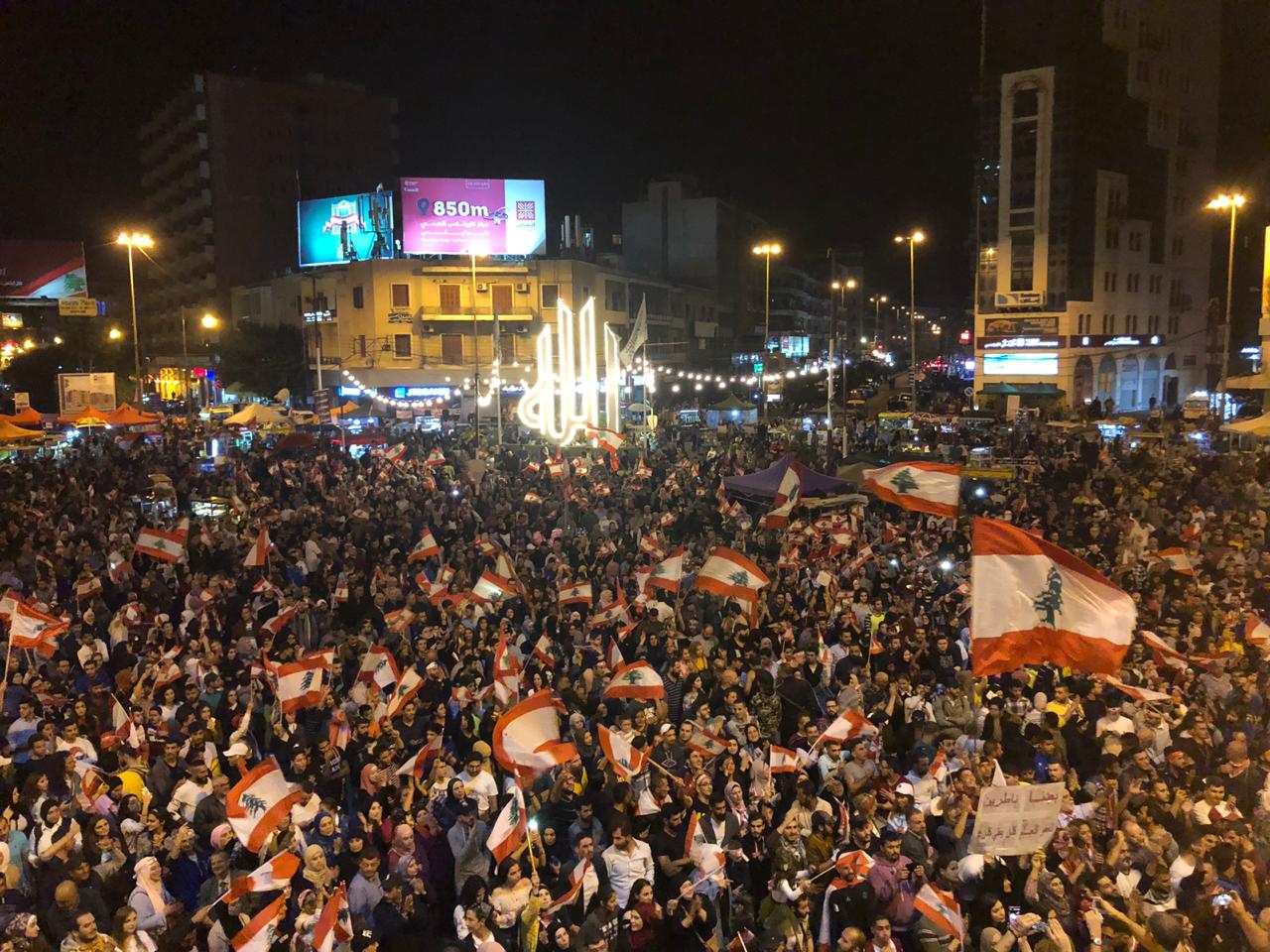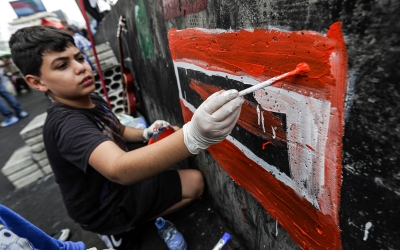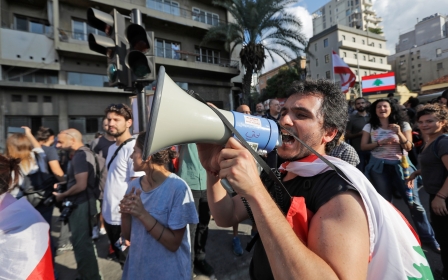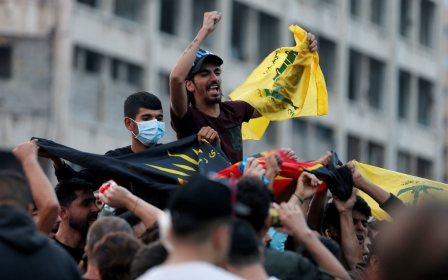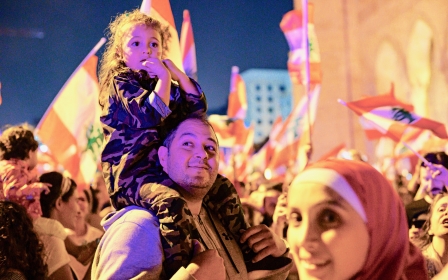Impoverished and ignored, Tripoli rises to become heart of Lebanon's protests
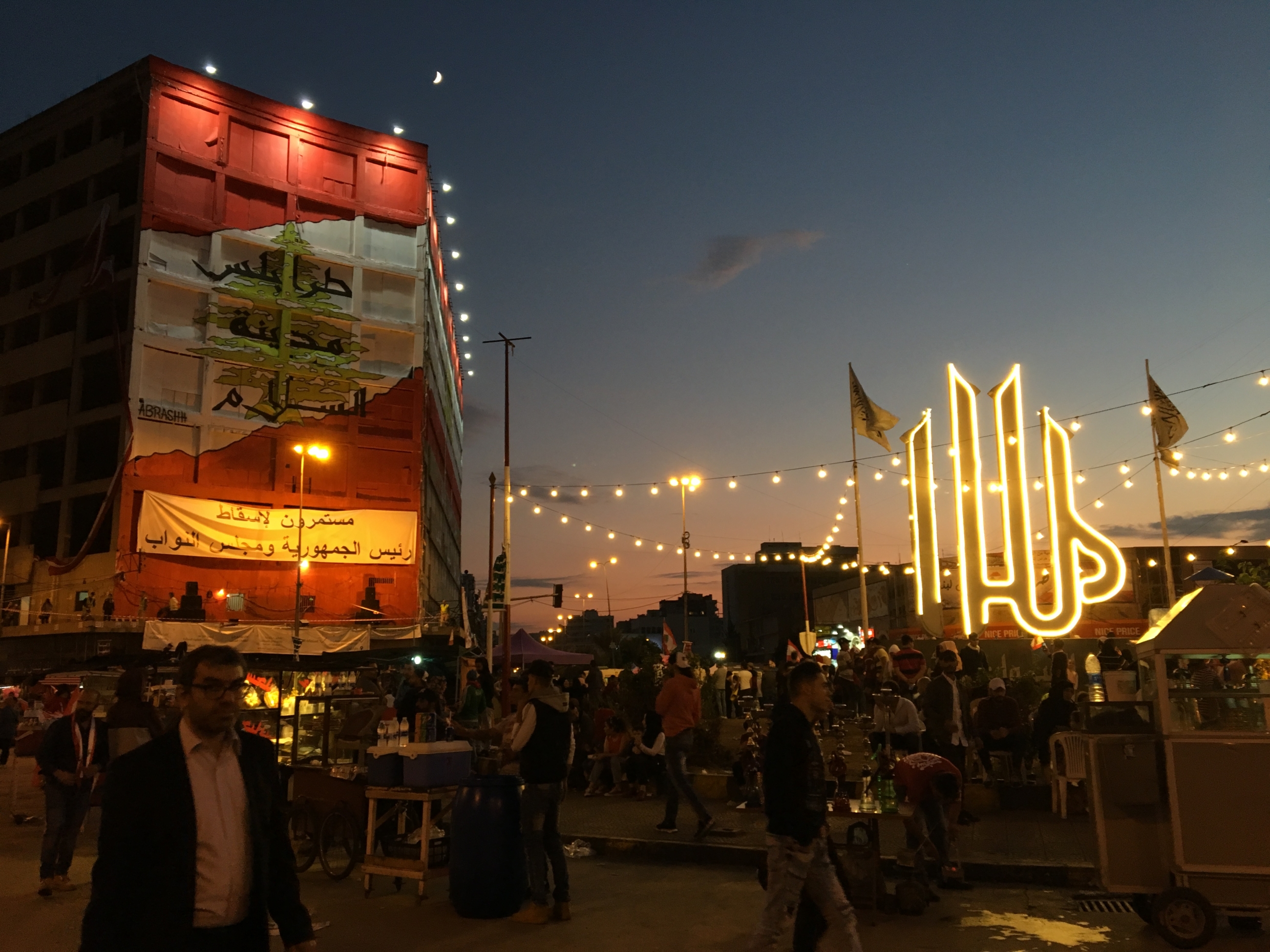
Last weekend, several thousand protesters gathered in al-Nour Square in the heart of Tripoli - one of the strongholds of Lebanon’s anti-establishment protests.
The square remains closed to traffic until further notice. The surrounding buildings have been repainted with the colours of the Lebanese flag. Local residents have put up a list of demands and written a slogan in large letters - "Tripoli: city of peace".
"When you Google Tripoli, Lebanon, the only thing that comes up are war pictures," says Mariam, a fresh graduate working as a tour guide.
"This is what the politicians want us to look like. But it’s not true, this is not who we are. Our city is beautiful and the people are welcoming.”
Heading north
Stay informed with MEE's newsletters
Sign up to get the latest alerts, insights and analysis, starting with Turkey Unpacked
With more than 700,000 inhabitants, Tripoli is the second-largest city in Lebanon. It is predominantly Sunni and has a very conservative image.
Back in 2014, it was not uncommon to see portraits of young martyrs who died in neighbouring Syria or in the clashes between the Sunni district of Bab al-Tabbeneh and the largely Alawite neighbourhood of Jabal Mohsen.
Those sombre images seem a far cry from the Tripoli today, however, with the city holding the most festive demonstrations of a carnival-like nationwide protest movement.
On several occasions, convoys of protesters from Beirut and other parts of the country have even headed north to Tripoli in a show of solidarity.
“This is the first time in 30 years that I feel like we are one," says Bassam, a 35-year-old restaurant owner.
"I mean look at the people, hijab, no hijab, Shia, Christian, Sunni… They even came from Beirut and the south! They are here to revolt with us. Why? Because we are now all on the same page."
The demonstrators, who have welcomed the resignation of Prime Minister Saad Hariri on 29 October, want to continue the protests at least until a new government of technocrats independent from political parties is formed.
"This revolution can’t be achieved in just a few days. It’s like everywhere else, people need to understand that this is a long-term commitment," explains Abdallah, an unemployed architect.
"That’s why we stay in the streets under tents, and try to raise awareness, explain to people what the next steps are," he adds.
"In all cases we have to maintain the pressure on the politicians. If we go home now all this will have been useless."
Marginalised and impoverished
In the 1970s, Tripoli was promised a bright future. The northern city had a large seaport, an airport, a train station, an oil refinery and even an international fairground designed by legendary Brazilian architect Oscar Niemeyer.
Fifteen years of civil war (1975-90), followed by another 15 years of Syrian occupation until 2005, scattered these dreams.
'We have to maintain the pressure on the politicians. If we go home now all this will have been useless'
- Abdallah, unemployed architect
Today, Tripoli is one of Lebanon’s poorest cities. More than half of the population lives below the poverty line.
At the same time, local politicians do not hide their wealth. Forbes Magazine has ranked former prime minister and telecoms mogul Najib Mikati amongst the Arab world’s richest men.
The social contrast is striking and explains part of the anger protesters express today.
In some neighbourhoods, over two-thirds of the population are jobless, including a vast majority of young graduates who often have no choice but to accept money from politicians. Over the years, bribery has become a common practice and most people talk about it openly.
Corruption and bribery
Wael, 23 years old, started working at the age of 10 to help his family. During the holidays and weekends, he worked as many hours as he could at a canned food factory. When he graduated from high school, however, he couldn’t afford to go to college. That’s when the local politicians stepped in.
“Najib Mikati’s men contacted me and offered to pay for my tuition. In exchange, I had to post positive things about them on social media. I accepted the deal for a year,” he tells MEE.
"Corruption is everywhere. It is impossible to survive without it," says Ahlam, mother of eight children, six of whom are unemployed. The two working sons were hired thanks to an acquaintance in the Future Movement, Hariri's party.
"It happens a lot during elections," says Marwan, one of Ahlam's sons.
"We ask for something and in return they ask us for a list of family members who can vote for them," he adds.
"We sell our ballots, that’s all we have. On election day they are very careful, they call us. For example, the last time they told me that they did not see my mother at the polls and that they were waiting for her."
There is no guarantee that the parties will uphold their part of the deal, so some Tripolitans prefer to be paid cash. A vote sells between $50 and $100 on average.
In Lebanon, where the minimum wage is $450 a month, this represents a large sum of money for many households.
"We depend on them for everything: to put our children in school, to go to hospital, sometimes to even eat," says Wissam, a 34-year-old protester.
'Corruption is everywhere. It is impossible to survive without it'
- Ahlam, mother of eight
In Tripoli, the population no longer believes the promises of leaders.
Unlike in other parts of the country, where counter-demonstrations and violence from Hezbollah and Amal supporters have intimidated protesters, in Tripoli the vast majority of the population supports the movement.
Mobilisation is expected to continue this weekend to put an end to corruption, bribery and mismanagement of public funds.
"It's not normal, we do not want this system anymore," says Wissam.
"Their job is to improve our living conditions, that’s what they are elected for, not to throw us a little money from time to time."
Middle East Eye delivers independent and unrivalled coverage and analysis of the Middle East, North Africa and beyond. To learn more about republishing this content and the associated fees, please fill out this form. More about MEE can be found here.


